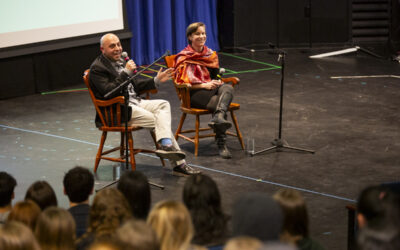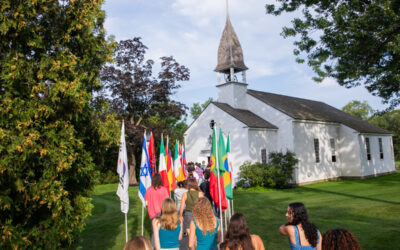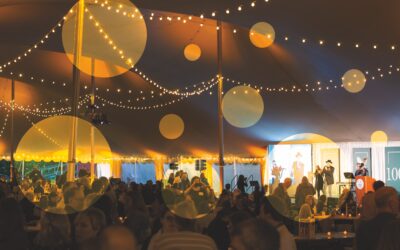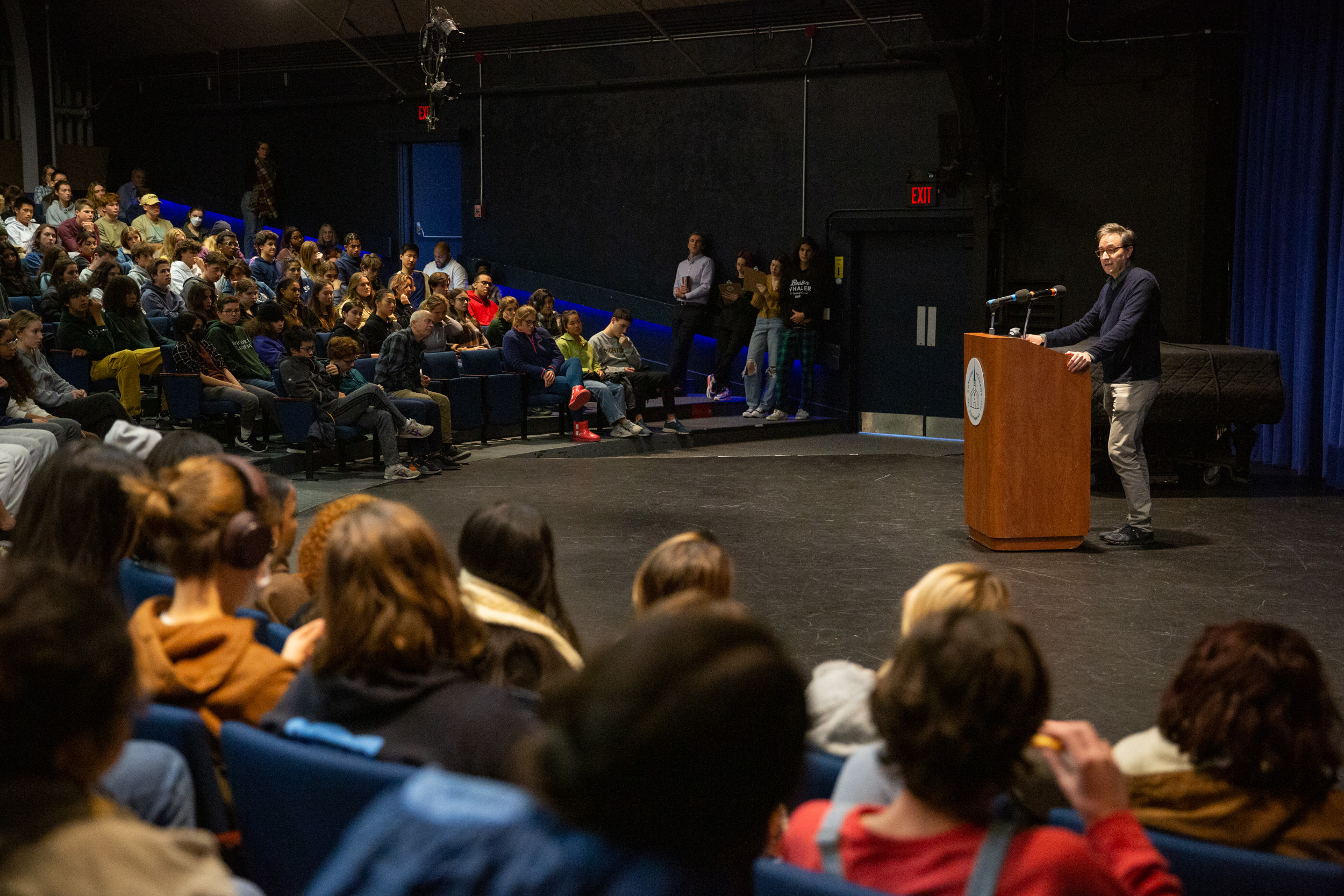
It’s difficult to imagine a talk more in the spirit of Concord Academy than the 2022 Centennial Davidson Lecture by Ken Dornstein P’23. The endowed lectureship invites eminent speakers to campus to share their stories and expertise, and on November 18 the documentary filmmaker and author did that with dramatic flair and expansive heart.
“I tell stories for living,” Dornstein said at CA, summing up in simple terms three decades of creating films, books, and commercials. “I’ve made a career of telling stories that have been covered over by time, or purposely buried by people in power,” Dornstein said. Some are from the past, others from the present. With each story he tells, he intends to cultivate “empathy for people whose lives we otherwise might not take the time to understand.”
Dornstein has been involved in the production of more than 50 films on a wide array of subjects, including the Penn State football scandal, political uprising in Iran, and bride kidnapping in Kyrgyzstan. A longtime producer of the PBS documentary series Frontline, Dornstein produced and directed the Emmy Award-winning My Brother’s Bomber (2015), a three-part series that led to the first new charges in the biggest terrorism case in the U.S. before 9/11. Another series he produced, Long Strange Trip: The Untold Story of the Grateful Dead (2017), was shortlisted for an Academy Award. Dornstein has written two books, Accidentally, on Purpose: The Making of a Personal Injury Underworld in America, based on his work as a private investigator in Los Angeles, and the critically acclaimed The Boy Who Fell Out of the Sky: A True Story.
Addressing CA students, Dornstein acknowledged he’s not used to standing center stage—more often he’s the one behind the camera, asking questions. In all of his nonfiction, whatever its form, he works to establish journalistic, emotional, and artistic truths. But he’s most personally connected to one particular story, which he shared at CA.
When Dornstein was 19 years old, he received the shocking news that his 25-year-old brother David had died in a plane crash. At the time, Dornstein aspired to write for Saturday Night Live, and his brother, a writer and artist, had been urging him to take up more serious matters. “This world of serious things literally crashed into me and my family, forever dividing my life into before and after,” he said at CA.
It took weeks for Dornstein’s family to understand what had happened: En route from London to New York, Pan Am flight 103 had been bombed by terrorists. The plane had come down in the small Scottish town of Lockerbie, killing 270 people. Dornstein’s family found themselves part of the biggest news story in the world.
In his grief at losing his closest family member and greatest champion, Dornstein didn’t initially care much who was responsible. But eventually, he said, “getting curious seemed a lot better than feeling sad or angry.” He began looking through the boxes of things David had left behind to tell the story of his life. And he began wondering how he could tell the story of his death.
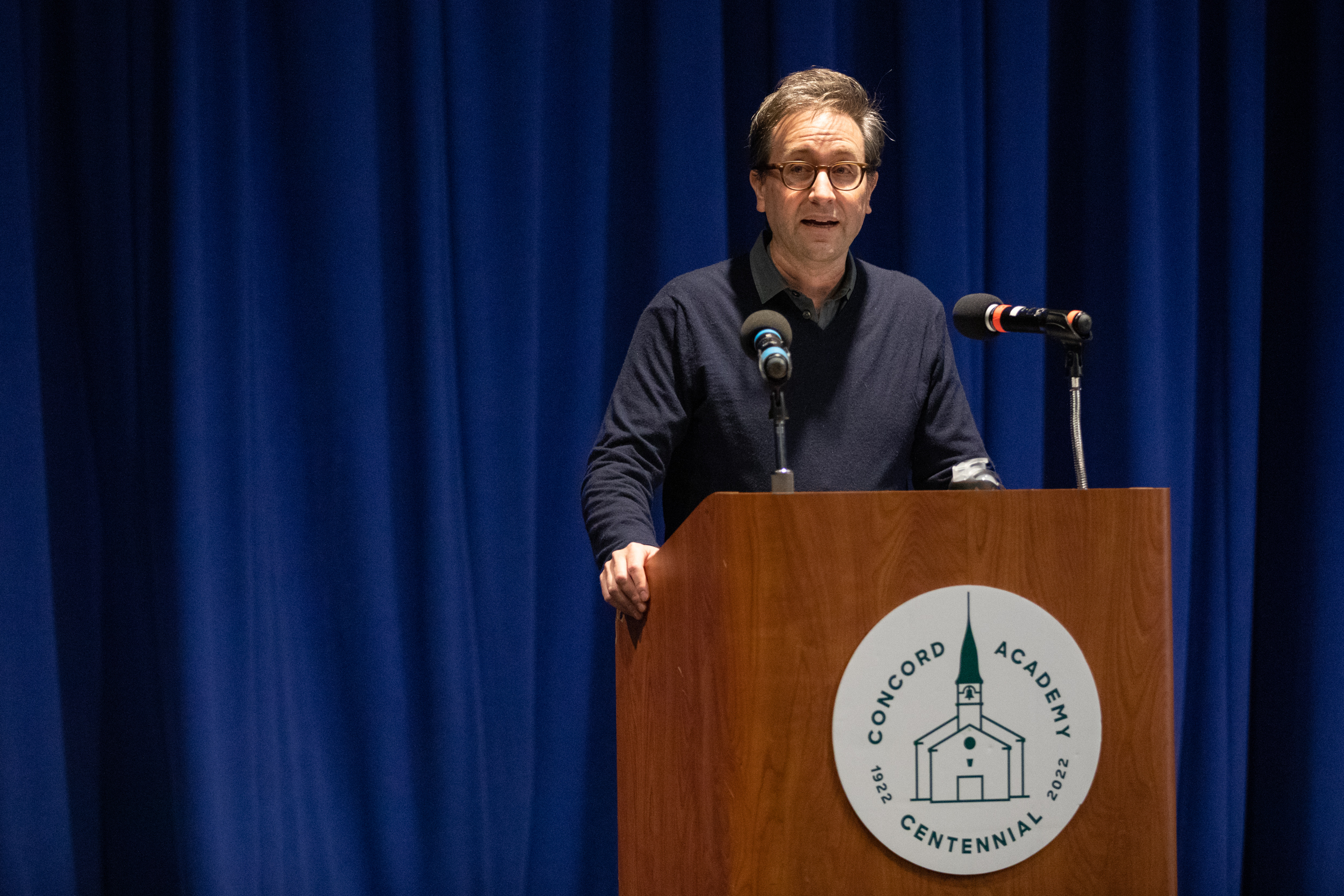
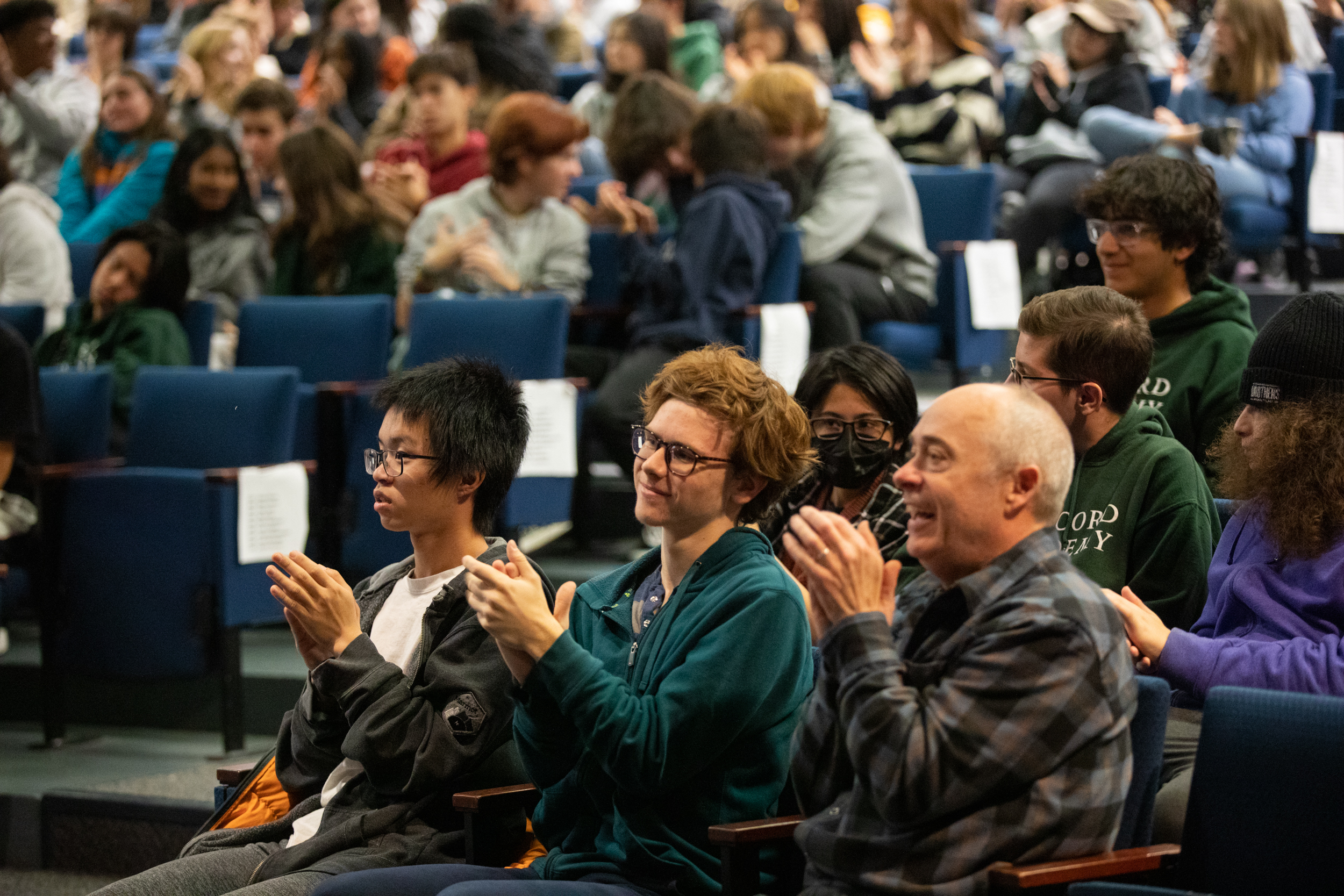
While he was home from college, Dornstein watched a docudrama reenactment of the Lockerbie bombing and the subsequent investigation and apprehension of suspects. Very few of the facts it presented turned out to be true, Dornstein said, but watching it “planted an idea in my mind: that the truth of what happened was out there somewhere, and that there were people—journalists, documentary filmmakers, investigators of one kind or another—whose job was to be curious about it.”
Solving the mysteries of his brother’s life and death came to feel like Dornstein’s “real job in life.” He secured a summer internship at a news network in New York. In the era before the internet, it gave him access to archival tapes—raw footage from the bombing, which he began to review. Then, as a college senior, he encountered a recruiter for a job whose main requirements were “a healthy curiosity about the world and having a deep interest in finding the truth.” After graduation, he moved to Venice Beach, Calif., to become a private investigator.
In his search, the skills Dornstein developed while knocking on doors and talking to people served him as well as the critical reasoning he had nurtured in college. The “liberal arts 101 stuff,” he said, even gave him an advantage over a typical police mentality. And later, working for Frontline gave him “a license to tell stories.”
Over many years, Dornstein quietly assembled the facts of the Lockerbie bombing. The initial investigation had identified two conspirators, who were charged, and pointed to a third, a bomb-maker, who remained unknown. Eventually Dornstein felt certain he had identified the person responsible, whose name had never appeared in news coverage. To track him down, he traveled to Libya, where the man was in prison, awaiting trial for an unrelated bombing. In 2020, 32 years after the attack, the FBI agreed with Dornstein’s deductions and the Department of Justice issued an arrest warrant for the suspect he had identified.
“I was never looking to punish anyone,” he said, “so much as I was driven to tell the true story of what happened.”
Dornstein considered the “seeming inevitability” of his own life story when looked at in hindsight. “That’s both the lie and the truth of storytelling,” he said. “It’s all a construction, even what we call nonfiction, especially the stories we tell ourselves. But when it works, these constructions give our lives coherence and meaning.” Sharing our stories—as Dornstein noted CA students do in each chapel talk—he added, “gives us an added sense of belonging in a larger group—our tribe, our community. That’s the power of story.”
At the end of his address, Dornstein offered Concord Academy a gift for its Centennial: his own investigation into how the Elizabeth B. Hall Chapel became, as he said, “the beating heart of the CA community and a symbol of the school’s values.” The story of how the building was disassembled in New Hampshire and reassembled in Academy Garden has endured. But in digging into CA’s historical accounts, Dornstein learned that the success of the endeavor had been far from assured.
“Stories are constructions that give our lives coherence and meaning, and sharing them gives us an added sense of belonging in a larger group—our tribe, our community.”
Ken Dornstein P’23
2022 Centennial Davidson Lecturer
Headmistress Hall had gone to look at the building just to buy the pews. But in that old meeting house she saw a promise that she kept carefully guarded. In defiance of the school’s mostly male overseers, who had warned her not to buy the building, she spent the equivalent of $17,000 of her own money to purchase it. As Dornstein detailed, she then kept it a “fairly tightly held secret” for over a year, dreading the time when it would be erected under their watchful eyes. Amid critical gazes, her “ragtag crew” assembled the bits and pieces of wood until the venture became more substantial and others could for the first time visualize it. Then the spirit of adventure, conspiracy, and fun became infectious.
Dornstein said he loved discovering this story about Hall’s “‘crazy idea’ to put the pursuit of meaning and the telling of stories at the center of CA.” From his own crazy ideas, he continued, he learned “how much tolerance for failure you need to have in order to succeed.”
